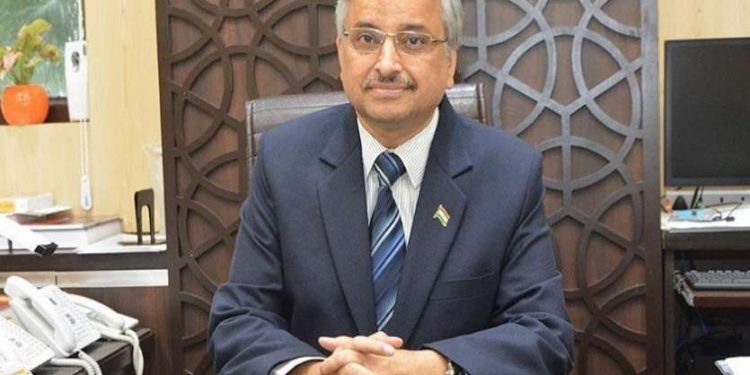New Delhi: Indian vaccines offer lot of hope, due to various factors including a good safety signal, display of immunogenicity and capability of using the current storage infrastructure, AIIMS Director Dr Randeep Guleria said in an exclusive interview with this agency. Dr Randeep Guleria also said that when India will develop its own COVID-19 vaccine it will have a huge advantage over the one being made by Pfizer.
Recently, drug company Pfizer announced that its vaccine candidate for COVID-19 is more than 90 per cent effective at preventing infection. This was welcomed as a major step in the fight against the virus, which has unleashed havoc on the global economy.
Guleria said that the Indian COVID-19 vaccine has a huge advantage over the Pfizer vaccine. The Pfizer vaccine is required to be kept at a much lower temperature. Hence, cold storage for other vaccines can be used for the Indian COVID-19 vaccine too.
Q: We have not seen any major issue with Indian vaccines at the trials stage, are you satisfied with progress made so far?
A: Indian vaccines have a lot of hope and there are two or three reasons for that. The first is that their safety signal is very good and immunogenicity is also being shown. One is now looking at the results of Phase-3 trials, which will take some time, but I am hopeful we will have good amount of data because multi-centric studies is being done. We quickly will be able to generate some interim analysis to show in Phase-3 trials this vaccine can give good efficacy.
Q: Drug company Pfizer announced that its vaccine candidate for COVID -19 is more than 90 per cent effective at preventing infection. Are Indian vaccines on a better footing than Pfizer?
A: What Pfizer has got is something very encouraging for other vaccines researchers also, because that shows there is a potential of good immunity by the vaccines. Therefore, other vaccines should also do well. Therefore, it is big news for all vaccine developers. We can hope for a 90 per cent efficacy.
The advantage for the Indian vaccine is that it is required to be kept at a much lower temperature. The Pfizer vaccine currently have to be kept at minus 70 degrees Celsius, therefore it will be very difficult to vaccinate people in lower- and middle-income countries. Because having a vaccine stored and transported at minus 70 degree Celsius not only needs huge investment but also needs huge planning, because most vaccines are not kept at low temperatures.
The Indian vaccines are going to be kept at a temperature of minus 20 degrees Celsius and this is available for most vaccines. As most vaccines a have cold storage facility, these can be used for this vaccine also. Therefore, the investment is not much. If we were to use a vaccine which requires storage at minus 70 degrees Celsius, then one would require whole new cold chain development. I do not see that happening in lot of countries.
Q: Is 90 per cent efficacy is being aimed at by Indian companies developing vaccine against COVID-19?
A: We would like to have as much efficacy as one can. WHO says if any vaccine has more than 50 per cent efficacy, it is good enough. We would definitely like to have an efficacy of 80-90 per cent. So, let us hope that is what we are able to achieve.






































